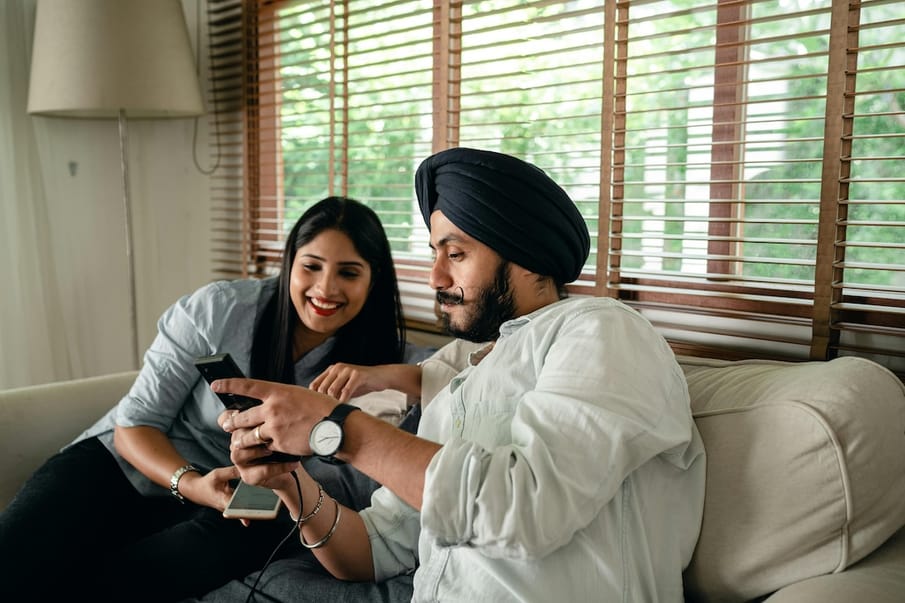Giving and receiving little gifts has a big effect on our emotional bonds – as the natural world proves…
Believe it or not, the gentoo penguins of Antarctica have inspired one of the latest trends on social media. During mating season, male penguins present female penguins with the smoothest pebble they can find. If she accepts it, the pebble becomes the start of a nest for the new pair and their future brood.
The human version of this penguin courtship – wooing a prospective partner with thoughtful little gifts – has been going on for centuries. But now, thanks to those gentoo penguins, this practice has a 21st-century label – ‘pebbling’ – and is expressed not only through objects, but also by sharing online content.
The hashtag #pebbling has more than 1.5 million views on TikTok, with people sharing their experiences of ‘pebbling’ friends, colleagues, and family members, as well as romantic partners.
So why does ‘pebbling’ bring us together, and how can we do it well?
Understand why it works
Ever felt more excited to give a gift than receive one? Gifts bring us closer to others because the exchange makes both people involved feel good.
“Psychologically, our brains are wired for connection, and the sharing of gifts fulfils several emotional needs,” explains Holly Beedon, clinical lead at mental health charity Living Well UK. “It shows we think about those we care about even when they’re not around. It also shows appreciation and empathy for the receiver’s personality and preferences, which makes people feel closer and understood. And, importantly, it’s fun! When we share in something joyful it releases endorphins and dopamine as part of the brain’s pleasure and reward systems for both parties.”
Look for online content perfect for ‘pebbling’
Memes, videos, photos, GIFs… We have a veritable emporium of ‘pebbles’ at our fingertips, 24/7, for free, making it easy to reach out with a simple, ‘I saw this and thought of you…’
“Sharing online content supports social connection just as much as any gift,” says Holly. “It’s often funny, which not only boosts mood and reduces stress, but also strengthens connections via a shared sense of humour.”
Dr Ute Liersch, counselling psychologist at The Soke clinic, adds it can be particularly welcome if someone we care about is going through a tough time. “This seemingly insignificant gift can provide a moment of respite, reminding us that a less stressful world exists and that someone cares – it’s a tangible sign of support and affection,” says Dr Liersch.
In fact, a Sheffield Hallam University study found that ‘pebbling’ by sharing internet memes even helps alleviate symptoms of anxiety and depression.

Use ‘pebbling’ as a neurodivergent love language
The term ‘pebbling’ has been floating around the neurodiverse community for some time (the #pebbling hashtag is often spotted alongside #ADHD or #autism across TikTok and Instagram).
While there is no ‘one-size-fits-all’ explanation for why this is the case, Holly says, “Neurotypical social norms can feel distant or even stressful for anyone neurodivergent, for whom forming social bonds can sometimes be more challenging. [Sharing a video or meme can be] much clearer than verbal ways of affirming your connection with someone.”
She adds that online content’s short-form format “makes it accessible for everyone, but perhaps especially if your attention naturally moves between different stimuli.”
Turn to different ‘pebbles’ for different relationships
Don’t go ‘pebbling’ everyone in the same way. Simon Davies, registered counsellor and walking therapist at Living Well UK, points out that what we give, plus the intention behind it, will be unique to each relationship. “Sharing in-jokes may be great with a friend you know and trust, while memes related to a shared profession or industry can help foster a sense of community in the workplace,” he explains.
“And there will be platonic and flirtatious versions of ‘pebbling’. Videos about a shared interest could be a point of connection platonically, while more personal notes or surprise gifts are ways people may explore and deepen a relationship.”
Beware of ‘over-pebbling’
Simon warns: “Online content is so easy to send, [potentially] resulting in overwhelming someone with content. If it becomes one-way, it can be a sign it’s becoming less of a shared experience.
“If the ‘pebbles’ are gifts that cost, it’s important to be aware of the additional pressure this can put on someone to reciprocate, even if this wasn’t your intention. Equally, what may be your love language might not be someone else’s, so it’s worth noticing if ‘pebbling’ has become a substitute for other forms of communication,” he says.
Dr Liersch believes ‘over-pebbling’ strips this act of its emotional punch: “For example, you walk past some beautiful lavender and remember your partner’s joy at its scent. You take a picture and send it. However, if you send the same picture every day the act loses its meaning. Over time, the image becomes a symbol of convenience and superficial connection – remember, less is more.”


Comments